Atiku 2027 Bid: Foolhardy Gambit or Political Redemption?
Lagos, August 25, 2025 – Contrary to recent reports to the effect that he may opt out of the 2027 presidential contest, former Vice President Atiku Abubakar has restated that he will run for the nation’s top job.
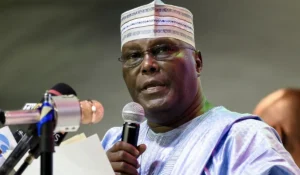
The former vice president today declared his intention to run for the presidency in 2027—this time from the African Democratic Congress (ADC) platform following his resignation from the People’s Democratic Party (PDP). It’s a bold play, but one that faces serious headwinds—from legal and constitutional requirements to integrity questions forever linked to the words of his former boss, Olusegun Obasanjo.

1. Political Reboot or Mirage?
- Resignation from PDP: On July 14, Atiku formally quit the PDP, calling it a betrayal of its founding values. This ended decades of affiliation with the party he helped build—and from which he twice secured presidential nominations.
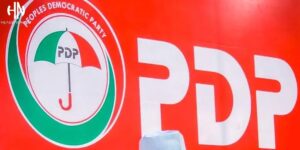
- Joining ADC Coalition: He has now aligned with ADC alongside Peter Obi and others, positioning the party as the primary anti-APC vehicle ahead of 2027.
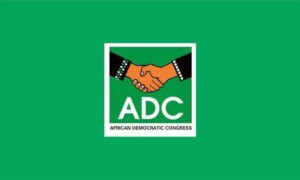
2. Constitutional Hurdles & Electoral Math
- Eligibility: At age 80 or so, Atiku faces no age barrier under the 1999 Constitution.
- Electoral Ground Game: ADC currently holds just 2 seats in the National Assembly, indicating minimal reach and structure. ADC’s past presidential bids never broke 0.2% share—hardly a winning base.
- 2023 Benchmark: Atiku came second with 29% of the vote as PDP candidate. ADC will need more than name recognition—it must deliver a nationwide apparatus.
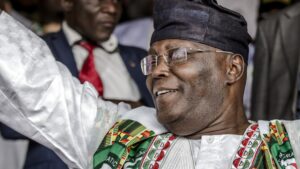
3. Obasanjo’s Verdict: Integrity or Interest?
In his memoir My Watch, former President Olusegun Obasanjo castigated Atiku as lacking integrity, disloyal, and self-serving. Those themes create a credibility gap that Atiku can’t simply bypass. Obasanjo retains global respect, especially among Western governments—the very stakeholders ADC needs to impress. His words weigh heavily.
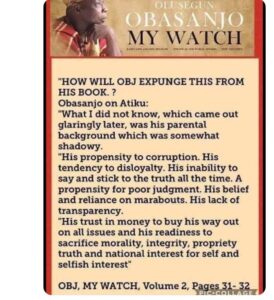
Atiku’s previous abandonment of Obasanjo’s administration in 2007 left a bitter political legacy. Even today, it fuels narratives that his ambitions outweigh national service.

4. Political Landscape & Zoning Dynamics
- Southern Turn: Nigeria’s current leadership and stakeholders have widely agreed that the presidency should shift to the South—preferably the Southeast—after Tinubu’s term. Atiku, though northern-born (Adamawa), may flout that understanding. That alliance may resist him.
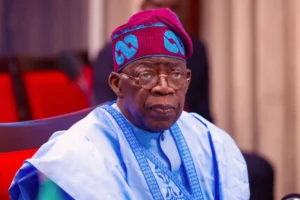
- Coalition vs. Branding: ADC’s coalition is promising on paper, but poorly defined in terms of who’s running, who leads, and how Southern interests will weigh in.

5. Evaluation: Will Atiku’s Gamble Pay Off?
Factor Assessment
- Party Structure: ADC lacks PDP’s machinery; building nationwide reach by 2027 is unlikely.
- Integrity & Trust: Obasanjo’s condemnation deepens credibility issues.
- Southern Backlash: A northern candidate faces resistance if the “Southern turn” holds.
- Candidate Age: Legally fine, but may raise generational leadership fatigue.
- Opposition Unity: Atiku–Obi split risk; the unity message may fall apart under internal stress.
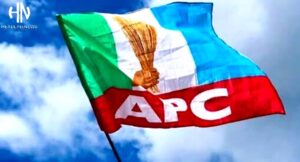
Conclusion
Atiku’s declaration reads less as a credible path and more as a desperate political play. Without defeating the Obasanjo-written narrative, building a formidable multi-regional structure, and overcoming southern resistance, his presidential gambit looks more foolhardy than compelling. Nigerian voters deserve leadership driven by vision—not by ego or broken reputations.

Atiku must confront the past—lest the past be his undoing.
Dr. G. Fraser. MFR
The National Patriots.
Reported for Headlinenews.news.
Comment or excerpt, and attributed quotes — based on verified public records — that underscore the integrity concerns surrounding Atiku Abubakar. They focus particularly on Obasanjo, with contextual links to other perspectives:
1. “Obasanjo: ‘His parental background was shadowy… his propensity to corruption… readiness to sacrifice national interest for himself.’”
Excerpt / Comment: In My Watch, President Olusegun Obasanjo delivers a blistering personal assessment of Atiku, painting him as disloyal, untrustworthy, and self‑serving — not mere political commentary, but a damning character indictment from a former boss.

Quote:
> “What I did not know, which came out glaringly later, was his parental background which was somewhat shadowy, his propensity to corruption, his tendency to disloyalty, his inability to say and stick to the truth all the time… his readiness to sacrifice morality, integrity, propriety, truth and national interest for self and selfish interest.”
2. “Obasanjo: ‘I wanted to dismiss and jail him… if his appointment was an error, I fully accepted responsibility for the mistake.’”
Excerpt / Comment: Obasanjo claims that Atiku’s performance as Vice President was so problematic he nearly removed him, revealing a deeply troubled working relationship.
Quote:
> “This was a man I wanted to dismiss and jail but for the intervention of Shagaya and Shehu Yar’Adua… However, if his appointment was an error, I fully accepted responsibility for the genuine mistake.”
3. “Obasanjo: ‘God will never forgive me if I support Atiku.’”
Excerpt / Comment: Obasanjo’s rejection of political reconciliation with Atiku is framed in moral and spiritual terms — a strong public rebuke that transcends politics to impugn Atiku’s ethics.

Quote:
> “If I support Atiku for anything, God will not forgive me.”
4. “Wike: ‘Too late for Atiku to buy character and integrity.'”
Excerpt / Comment: Rivers State Governor Nyesom Wike, a key figure in Atiku’s own party, bluntly asserts the former Vice President lacks the integrity needed to be taken seriously in 2027.

Quote:
> “For the records, Obasanjo said in his book… his readiness to sacrifice morality, integrity, propriety, truth and national interest for self and selfish interest.”
(Referenced to reinforce the integrity issue.)
5. “Reuters: Atiku’s US trip was enabled despite a bribery-related travel ban.”
Excerpt / Comment: A 2019 report cited by Reuters reveals that Atiku was effectively under a travel restriction tied to bribery allegations — only lifted temporarily — suggesting an enduring cloud of international suspicion.
Quote (paraphrase):
> Reuters: Atiku had been banned from entering the United States due to involvement in corruption cases, and the travel ban was temporarily waived by the US State Department.
6. “Guardian: 2007 Senate probe accused Atiku of diverting more than $100 million.”

Excerpt / Comment: Atiku’s tenure as Vice President stirred serious allegations of financial misconduct — a Senate inquiry recommended prosecution over massive diversion of public funds — reinforcing longstanding credibility gaps.
Quote (paraphrase):
> The Guardian (2007): Nigerian senators accused Vice-President Atiku Abubakar of diverting more than $100m in public funds to his private interests; a Senate inquiry recommended prosecution.
Summary Table
| **Title | Key Insight** |
|---|---|
| Obasanjo’s Harsh Profile of Atiku | Integrity, national interest subverted by personal ambition |
| Obasanjo’s Admission of Disappointment | A VP nearly removed for serious failings |
| Moral Repudiation by Obasanjo | A strong spiritual refusal to reconcile |
| Wike’s Public Rejection | Party insiders question Atiku’s character |
| International Travel Ban by U.S. | Global scrutiny and unresolved allegations |
| Senate Probe for Corruption (2007) | Institutional findings of misconduct during VP tenure |
Conclusion
These authoritative voices — spanning Nigeria’s former president, senior party leaders, Senate records, and international media — form a consistent narrative. They portray Atiku Abubakar as a figure whose integrity, loyalty, and ethical standing are deeply compromised. For a presidency, these are not minor blemishes—they are structural deficits that he has yet to convincingly overcome.
*Prepared for Headlinenews.news.*





